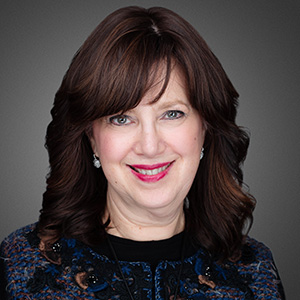Man on a Mission


A clearer consciousness of our beginning and our end
As I get older, I have the distinct sensation that time is going faster. Are we really approaching another new year? At different points in life, we experience time differently depending on the texture of what we are going through. Remember the board game we played as kids, Chutes and Ladders? We are all placed on the game board of life in a place we didn’t choose, and we chug along on the way to the finish line. Sometimes, like at the time of a simchah, we feel a lift, as though we’ve climbed a ladder and skipped a bunch of spaces on the board, and in some circumstances we feel like we slid down a chute, as if life has set us back to a place we’ve already moved past. All the people and places, all the setups and situations that we encounter are the spaces on the board. The important thing is not to get stuck.
Life’s Journeys
That ongoing march of key moments is what we call the journey of our lives. We are all on that journey, whether or not we realize it. We get on the train and it pulls out of the station at the moment of our birth. When the train stops, we get off, and will find ourselves at our destination, Olam Haba — a dimension of existence that comes from the choices we made while on the train.
Life’s journeys come in as many flavors as there are people. Some journeys are defined by a sense of mission. Rabbi Deutsch from the Living Torah Museum is on a mission to collect ancient artifacts that help Torah come to life for those who visit his museum. When I held what seems to be a machatzis hashekel — engraved in ksav Ivri, the Hebrew script that was used at the time of the Temple, rather than in ksav Ashuris, which is the script that was standardized later — I could imagine myself going up to the Mikdash to be counted among the Jewish People. It was thrilling.
I recently met with a woman who shared with me her journey, which had been fueled by her quest to have a child. After many frustrating years, she had reached a point of despair. She traveled to an exotic setting, and there, she was encouraged to meditate. Suddenly, from somewhere deep in her soul, emerged the words of Shema Yisrael — words she didn’t even realize she knew.
This experience led her to an inspired woman who taught her the laws of family purity. Today, she and her husband live an observant life, and her mission has shifted to raising the child they were finally blessed with.
Other journeys are less defined. We may not have a clear vision of our particular mission, and yet we don’t feel that we ’re lacking something critical for our existence. Even if our particular mission is not in focus, and we can’t say clearly what our destination will be, we still need a sense of purpose. We must make ourselves into a kli, a vessel, that has commonality with our Creator, so that we can forge a relationship with Him.
Sometimes life’s circumstances dictate the direction of our journey. An illness or a loss can change life’s trajectory in a moment. In particular, when our days are taken up with a trial that requires all of our time and attention, it is easy to feel that we are lost in the quagmire, going nowhere. It’s important to remember that this type of journey is no less valuable.
Destination: Obscured
The first words the One Above spoke to the first Jewish man were about going on a journey. Why didn’t Hashem tell Avraham where he was going? Wasn’t it enough of a test to ask him to leave his country, his community, and his father’s home? The Torah was teaching us a fundamental truth. Avraham and Sarah’s expedition was not merely a geographical one. They were modeling for us the spiritual trek that we all need to take. And the nature of a spiritual journey is such that we cannot foresee where it will take us.
Imagine walking down 34th Street toward Broadway in Manhattan. The skyscrapers come up to the sidewalk. You can be five feet from the corner, and you still cannot see what is around the bend. Only when you actually get to the corner will the vista open up before you. Sometimes, when we are feeling stuck, our job is to keep going, until we can get to that corner, and that new road we are now able to see informs the next direction in our journey.
I met Sarah at a kiruv program. She was on her way to a successful career in media. As a college student, she already had completed a prestigious internship at a major media outlet. All she wanted to speak about was her career. Now, several years later, she is a shomeres mitzvos who guides other girls. Would it have been possible for her to foresee her path? If she had been told where she would end up, would it have been helpful?
Escaping the Emtza Mindset
It is easy to be so occupied with the day-to-day that we give no thought to where we will end up. In his Alei Shur Volume 2, Rav Wolbe observes that most people prefer to live in “the middle.” In day-to-day life, who goes around remembering the moment of their birth, their earliest years, their “Mei’ayin basa?” Who really lives with the focus that there is an end point, a “l’an atah holeich,” that with every moment it is coming closer? We usually find a comfortable mental space, which Rav Wolbe calls the emtza, the middle ground, in which we put these things out of mind, and occupy ourselves only with matters of the here and now. (I have noticed that the middle is a moving target. I remember when I thought 30 was middle aged, and anyone over 50 doesn’t count. Now with each passing year the middle moves up, and I feel like maybe soon I will enter middle age!)
Rav Wolbe explains that it is to our great benefit to live with a clearer consciousness of the beginning point and the end point. The beginning, the “mei’ayin basa,” is that we were created. We didn’t create ourselves, and the Creator created each thing with a purpose. There is a meaning to our existence. Our life is set up to remind us of that, if we stop and notice. We say Borei peri ha’eitz, Borei nefashos rabbos. This is supposed to remind us throughout our day that there is a Creator, that everything was created with a specific purpose, and there is an end point at which we will give an accounting as to what we did with what He gave us and what in His world we made use of. By spending just a few seconds concentrating on the word Borei whenever it appears in a brachah, we can create a consciousness of the purposefulness of our journey.
Rav Wolbe concludes that a person who lives with this understanding and lets it filter down into her daily existence is leading a completely different kind of life. She senses that Hashem is accompanying her from the beginning of her journey to the end, and that He is holding her in the palm of His hand.
Chani Weinroth was diagnosed with cancer when her oldest child was five. Upon learning that she was terminally ill, she decided to write letters and poems for her children to remember her by. She wrote, “Did I ever ask Hashem why? Yes, every day. I say Modeh Ani and ask, why did You wake me up today? Why am I a mother? We have to ask why are we here. Then we can have a goal. If we never have a goal, we can never reach it.”
The journey of our lives is often tumultuous. There is the joy (fleeting) and the pain (sharp). The journey is sometimes confusing, hard, and scary, but it can still be great if we attempt to become the people we are meant to be along the way.
Safe travels.
Originally featured in Family First, Issue 604. Debbie Greenblatt is a senior lecturer for the Gateways organization and a teacher of both observant and not-yet-observant Jewish women for over 30 years. Debbie’s lecture topics include Jewish texts, Jewish thought, and relationships.
Oops! We could not locate your form.






